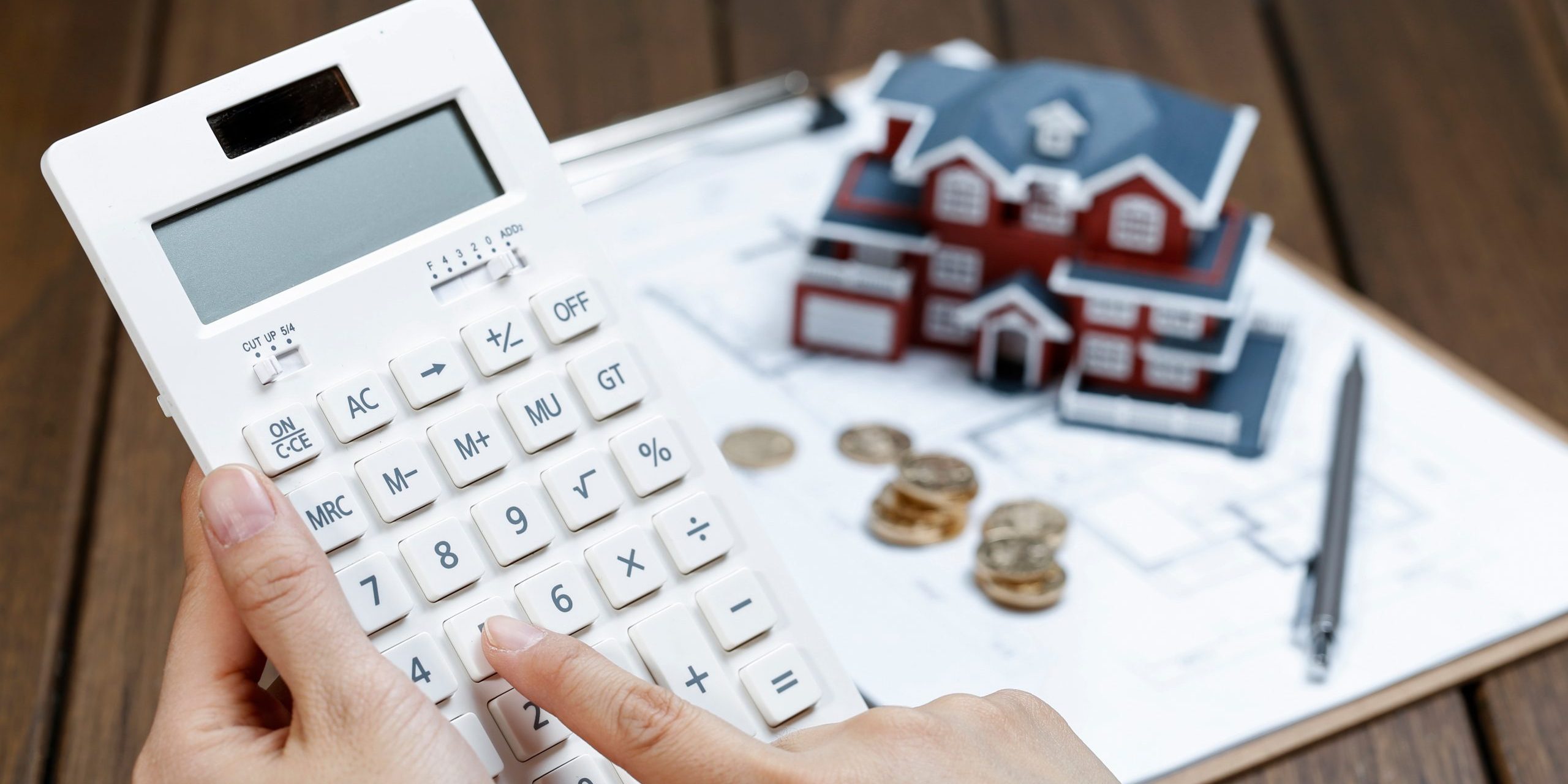Determining the rental value of your house is an essential step before listing it on the market. With the proper valuation, you can set a competitive price that reflects the true worth of your property and attracts the right tenants. Several factors influence how much rent you can charge, including location, property condition, market demand, and local rental rates.
To find the average rent you can charge for your house or flat in the UK, tools such as the rent calculator on OpenRent utilise a wide array of data points to provide an estimate in seconds. Landlords benefit from setting the right price from the beginning, while tenants can gauge what they’re likely to pay for a particular property.
While online tools offer a quick estimate, consider seeking advice from local letting agents for a more personalised valuation. They can provide insights into the specific rental market for your area and ensure your price is in line with current trends. Additional information, along with rental valuation calculators, can be found on platforms like OnTheMarket.
Understanding the Rental Market
When setting out to rent your property, gaining a firm grasp of the rental market is crucial. This includes ascertaining the potential rental value of your home and understanding how location significantly shapes rent prices.

Determining Rental Value
To determine the rental value of your property, consider both the average rental value in your area and the unique aspects of your home. Property features such as size, condition, and any recently completed renovations will affect pricing. The rental value can be assessed through online tools using your postcode or by consulting local estate agents who have a pulse on the current market conditions.
Influence of Location on Rent
The location of your property is a pivotal factor in setting rent. A desirable location close to transport links, schools, and amenities is likely to boost rental value. Understanding the dynamics of your local area, including the average rent for similar properties, can give you a competitive edge. High-demand locations may permit a higher rental price, as indicated by tools such as rent calculators that provide insight into average rent by postcode.
Preparing Your Property for Rent
When you decide to rent out your property, presenting it attractively and ensuring all legal and safety requirements are met, will help you achieve the best rental price. A well-prepared property attracts quality tenants and minimises potential issues down the line.
Property Presentation
First impressions matter, and how you present your property can make a significant difference in attracting tenants. Whether you choose to offer your property furnished or unfurnished can depend on the type of tenants you’re targeting. For example, a furnished property may be more appealing to short-term renters or those who are moving for work and do not wish to bring their own furniture.
- Furnished: This option should include all the essential furniture and fixtures that allow a tenant to live comfortably from the day they move in.
- Unfurnished: Generally, this means the property is equipped with only basic fixtures and fittings. However, providing quality kitchen and bathroom fixtures could make your property more appealing.
Regular maintenance is crucial. Your property should be in excellent repair before listing. This includes a fresh coat of paint if necessary, ensuring appliances are in working order, and attending to any damp or mould issues.
Legal and Safety Requirements
It is your responsibility as the landlord to ensure the property meets all UK legal and safety standards. This includes complying with gas, electricity, and water safety regulations to protect your tenants from potential hazards.
- Gas: Obtain a Gas Safety Certificate annually from a qualified engineer to certify that all gas appliances and installations meet safety requirements.
- Electricity: Ensure that your electrical system and appliances are safe and have been tested by a certified electrician. Though not mandatory, an Electrical Installation Condition Report (EICR) is highly recommended every five years.
- Water: Ensure that the water supply is safe and free from contamination.
It’s advisable to engage the services of reputable letting agents who can guide you through the process, helping with everything from valuations to legal obligations. They can also conduct reference checks and manage relationships with tenants. Remember, non-compliance with any safety regulations can lead to significant penalties.
Setting the Right Price
In the realm of lettings, establishing the right rental rate for your property is vital for attracting tenants and ensuring profitability. Precision in setting the pricing not only influences how quickly you secure a tenant but also affects your return on investment.
Calculating Monthly Rent
To determine the monthly rent for your property, start by using a rent calculator which factors in both your property’s square footage and its type. Typically, you’ll want the monthly rent to reflect about 0.8% to 1.1% of your property’s current market value. For higher accuracy, also consider the average rental yield which is about 4.75% in the UK. Note that this ratio can differ based on where your property is located within the country.
| Factor | Consideration |
| Property Type | Adjust pricing as per the amenities and type (e.g., flat vs house). |
| Square Footage | Larger properties often command higher rent. |
| Market Value | Use current valuations to guide rental rate. |
| Rental Yield Average | Aim for a yield close to the national average or better, depending on location. |
| Local Rent Prices | Staying competitive is key. |
Analysing Market Competition
Your rental rate should be competitive within the locality it resides. Scrutinise the going rates for similar properties to understand your competition. If properties with similar square footage and amenities to yours are priced significantly different, it’s necessary to understand why. This could be due to location, interior updates, or other market dynamics.
- Compare rental rates of similar properties.
- Adjust for unique features or lack thereof.
- Stay current, as the rental market is dynamic and changes frequently.
By rigorously evaluating these factors, you ensure your pricing strategy is rooted in market realities — neither underselling your property nor pricing it out of the market.
Marketing Your Property
Effective marketing maximises your property’s visibility and attracts potential tenants quickly. Here’s how to leverage online resources and agent expertise to your advantage.

Online and Agent Listings
To ensure your property reaches the widest possible audience, you’ll want to list on renowned platforms such as Zooplaand Rightmove. These websites are frequented by a vast number of potential tenants daily. Here’s what you should do:
- Create Compelling Listings: List your property with high-quality photos, a thorough description, and all the necessary details. Professional photographs can make a considerable difference. Ensure they’re taken on a sunny day to show your property in the best light.
- Utilise Letting Agents: Experienced letting agents provide valuable services such as online valuations. They have the tools and know-how to price your property accurately.
- Price Your Property: An online valuation can give you a quick estimate. For a more precise valuation, engage with local estate agents who understand the market nuances.
Conducting Viewings
Once you’ve piqued interest online, the next step is to host viewings. This is where potential tenants get a feel for your property and envision themselves living there.
- Prepare Your Space: Tidy up and fix any minor repairs. Make the place look inviting.
- Be Flexible: Offer viewings at various times to accommodate different schedules.
- Highlight Features: Point out any key attributes of your property, such as a newly fitted kitchen or proximity to local amenities and transport links.
Proper execution of these steps can help you secure the right tenant for your property quickly and at the right rental price.
Financial Considerations
Before setting the rental price for your property, it’s essential to understand the financial implications tied to mortgages and taxes and to budget accordingly for additional costs. This knowledge allows you to price your rental effectively and ensures you’re not caught off guard by unexpected expenses.
Understanding Mortgage and Taxes
Mortgage: If you have a mortgage on your property, consider if it’s a standard residential or a buy to let mortgage. Typically, a buy to let mortgage has different terms and may allow you to rent out your property legally. Always obtain permission from your lender before renting out a mortgaged property.
Taxes: You must declare your rental income to HM Revenue and Customs (HMRC). Rental income is subject to income tax, and if you own rental property, you’re also required to pay council tax. If the property is let unfurnished, the tenant may be responsible for the council tax.
Budgeting for Additional Costs
Lettings Agents Fees: If you decide to employ a lettings agent, anticipate paying an agent fee, which can vary depending on the level of service chosen – from finding tenants only to a full management fee.
- Initial costs may include a holding deposit typically capped at one week’s rent.
- Security deposits, capped at five weeks’ rent for properties with an annual rent below £50,000 or six weeks’ for those above.
Additional Running Costs:
- Ongoing costs like maintenance, safety checks, and repairs
- Utilities if not borne by the tenant, such as TV licence or service charges
- Costs of moving, should you need to vacate your current home to let the property
By carefully considering these financial aspects, you can determine an appropriate rental price that covers your expenses and yields a fair return on your investment.
Frequently Asked Questions
When determining how much you can rent your house for, specific questions frequently arise. This section aims to address those, providing confident and clear information to assist you.
How can the rental value of my property be determined?
The rental value of your property depends on various factors such as location, property condition, market demand, and nearby rental prices. You can begin with an online rental valuation to get a quick estimate.
What is the average rental price in my area?
Understanding the average rental price in your area can be as simple as using tools designed to help landlords and tenants find average rent by postcode.
How should I calculate the rent I should charge?
Calculating the rent you should charge involves evaluating market trends, local demand, and the amenities of your property. A general guideline suggests charging around 1% of your property’s value, although this may vary based on your location and the property’s specifics.
What are the factors affecting how much rent I can charge for my house?
Factors affecting your rental charges include your property’s size, condition, location, local market rates, and the cost of similar properties in the vicinity. Additional amenities like parking, garden space, and recent upgrades can also influence the rental value.
Where can I find a reliable online rental valuation?
For a reliable online rental valuation, websites like OnTheMarket and Property Checker offer tools to help estimate the rent you could potentially charge.
What percentage of the house value can typically be expected as rent?
Typically, a property may yield around 5% of its market value annually as rent. For example, on a property valued at £200,000, this would equate to an annual rent of about £10,000. However, these are guideline figures, and actual rental yields can vary considerably.



